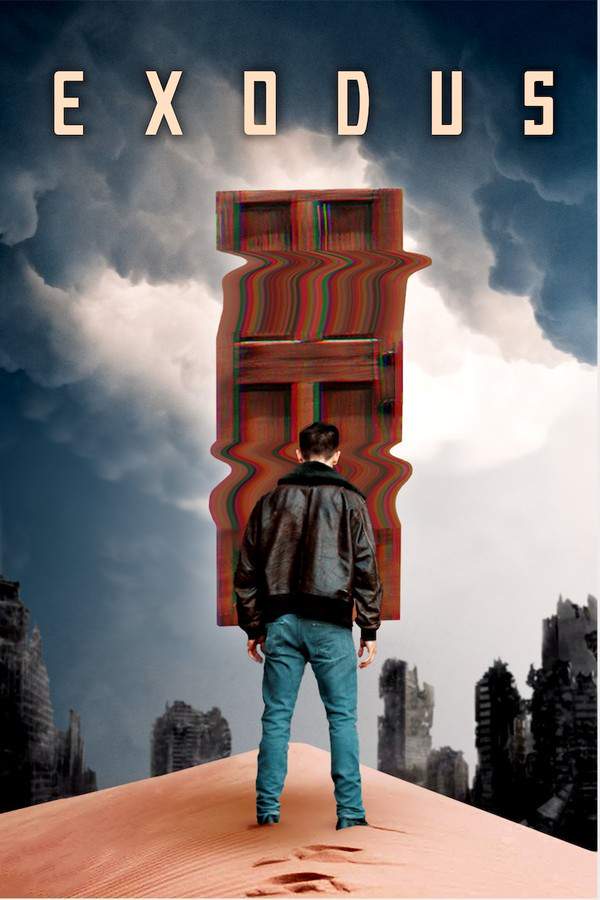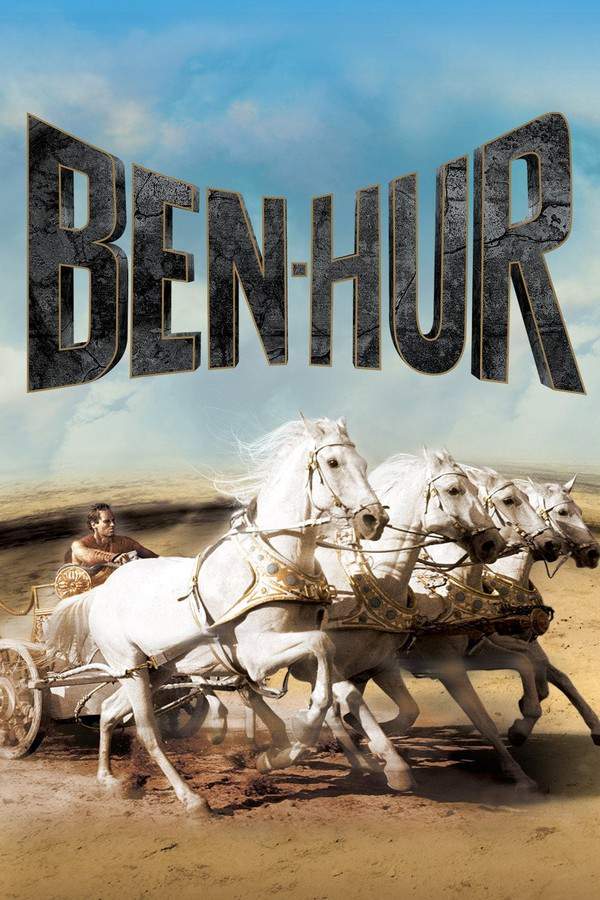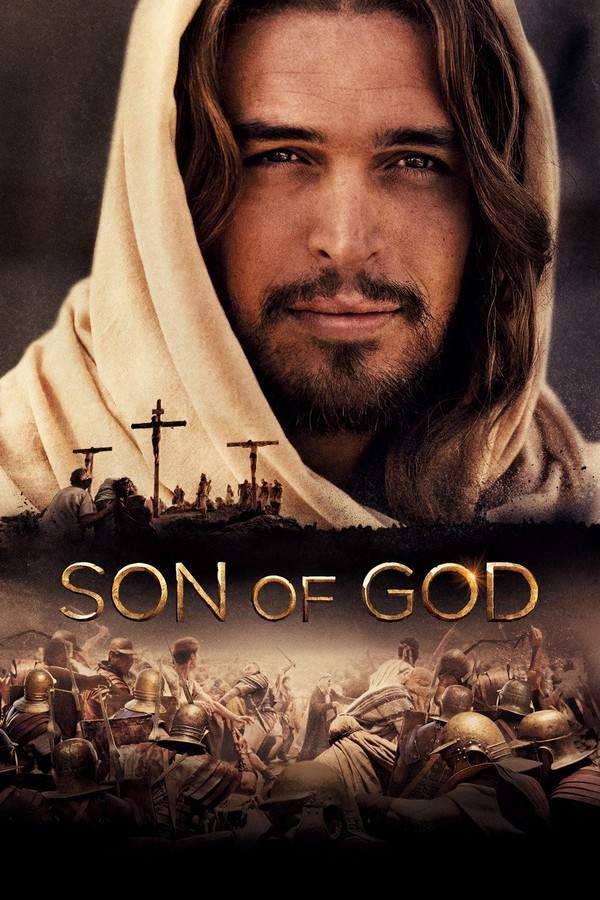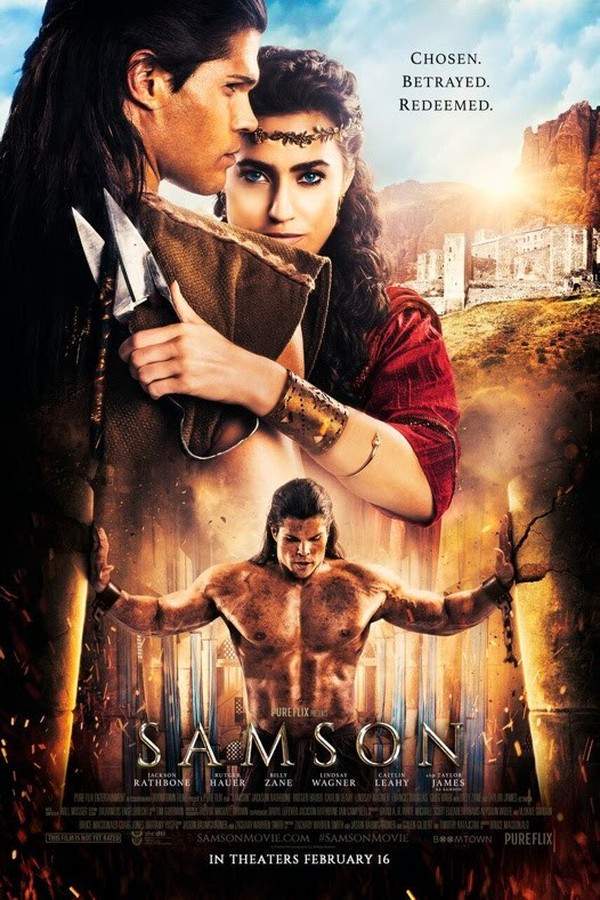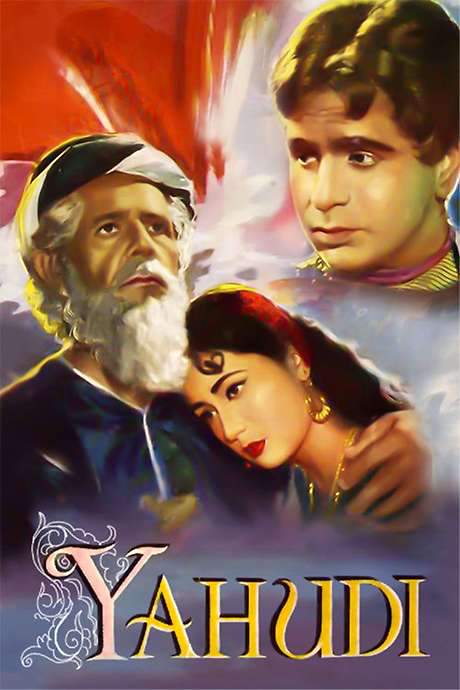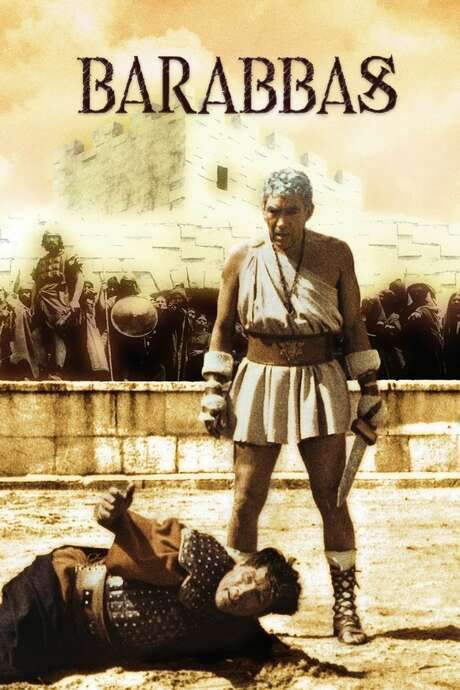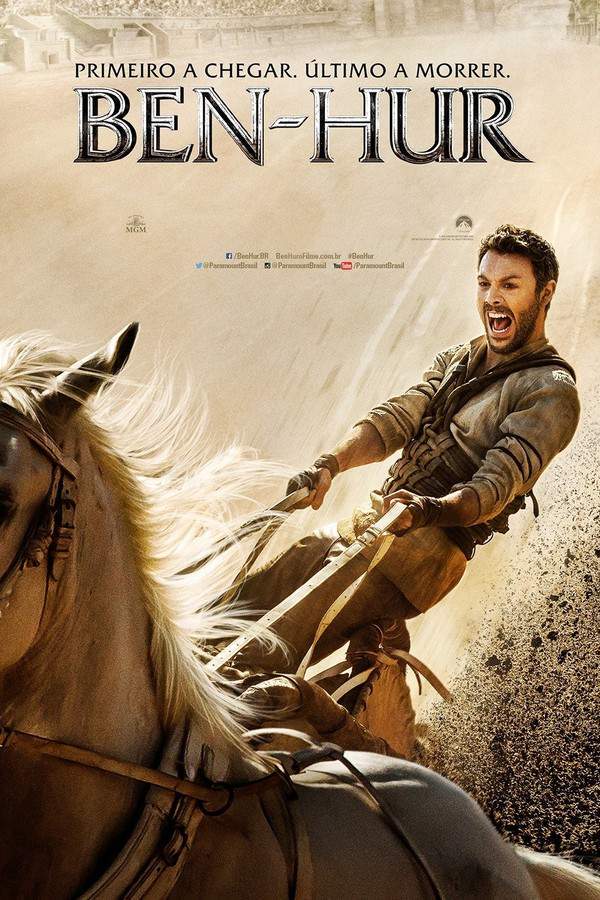
Ben-Hur 2016
Directed by

Timur Bekmambetov
Made by
Paramount Pictures
Test your knowledge of Ben-Hur with our quiz!
Ben-Hur Plot Summary
Read the complete plot summary and ending explained for Ben-Hur (2016). From turning points to emotional moments, uncover what really happened and why it matters.
A Hebrew nobleman, Judah Ben-Hur (played by Jack Huston), shares a strong bond with his adoptive Roman brother, Messala (portrayed by Toby Kebbell), despite their contrasting backgrounds. Their friendship takes a turn during a thrilling horse race when Ben-Hur is injured, prompting Messala to carry him back to their family home in Jerusalem. In this warm environment, Ben-Hur’s mother, Naomi (by Ayelet Zurer), and sister, Tirzah (played by Sofia Black-D’Elia), offer Messala their heartfelt hospitality, yet he feels increasingly isolated from the family he once cherished.
Driven by his ambitions, Messala joins the Roman army, participating in campaigns across Germany. Meanwhile, Ben-Hur grapples with his feelings for Esther (acted by Nazanin Boniadi), the family slave. Although he loves her, their disparate social standings prevent him from openly pursuing her. When Esther’s father, [Simonides](Haluk Bilginer), arranges for her to marry a Roman, Judah boldly professes his feelings, ultimately marrying her.
Three years later, Messala returns as a celebrated Roman officer amid a brewing conflict led by the rebellious Zealots, opposing the harsh Roman rule. Judah, empathizing with the Zealots, harbors a young fighter named [Dismas](Moisés Arias). The reunion between the brothers is tense as Messala seeks to recruit Judah as an informant. Following a dinner that showcases their families, Messala warns them of the arrival of a new governor, [Pontius Pilate](Pilou Asbæk), urging that peace must prevail.
However, chaos erupts when Dismas attempts to assassinate Pilate during his grand entrance into Jerusalem. This leads to severe consequences as the Romans retaliate against Judah’s family, resulting in him being enslaved on a Roman galley, while his mother and sister face crucifixion. Bitterly, Judah and Messala sever their bond, harboring animosity for one another’s actions. During his harrowing tribulations, Judah crosses paths with Jesus (portrayed by Rodrigo Santoro), who compassionately offers him water during his captivity.
Enduring five grueling years as a galley slave, Judah’s fate changes during a naval skirmish when he survives the destruction of his vessel. Rescued by Sheik Ilderim (played by Morgan Freeman), Judah manages to gain his freedom by showcasing his exceptional skills with Ilderim’s racing horses. Grateful for Ilderim’s kindness, Judah trains to become a chariot racer, aiming not just for glory but also revenge.
The impending chariot race in Jerusalem draws immense attention, with Jesus’s teachings capturing the public’s interest while Messala, now the commander of the Roman forces and a skilled racer himself, stands poised to reclaim his status. During his time in the city, Judah reconnects with Esther, who has dedicated herself to helping the needy through Jesus’s message. However, the tension of their differing priorities keeps them emotionally distant as Judah’s thirst for vengeance against Messala simmers.
After a brutal confrontation with Messala at their former home, Judah is forced to flee when Roman soldiers arrive. The brutal crackdown on Hebrews only deepens the divide between him and Esther, who becomes increasingly disillusioned with Judah’s thirst for revenge. Under Ilderim’s mentorship, Judah hones his chariot racing abilities, aiming to humiliate the Romans after Ilderim’s son was executed for rebellion. A former Roman soldier, Druses (played by Marwan Kenzari), brings news that Judah’s mother and sister are alive, though they suffer from leprosy, shattering Judah’s hopes of a family reunion.
With high stakes, Ilderim secures Judah’s participation in the race by bribing Pilate with an extravagant wager. Esther urges Messala to reconsider racing against Judah, but he remains determined to reclaim his status. As the race unfolds, Messala employs ruthless tactics against his rivals, but ultimately Judah’s strategic approach leads him to triumph. The victory lifts the spirits of the Hebrew spectators and brings a sense of justice for Ilderim.
Despite his hard-won success, Judah remains troubled by the fate of his family and his shared history with Messala. The situation worsens as Esther bears witness to the arrest of Jesus, whom Judah, despite his efforts to offer aid, finds himself severely punished by the Romans. Following a dramatic rainstorm, a miracle occurs as Judah’s mother and sister are healed by the blood of Jesus. Through Ilderim’s intervention, they are finally liberated.
In a resolution of compassion, Judah and Messala come to terms with their past grievances. Finding in themselves the power to forgive, they reconcile, paving the way for a shared journey as Judah, his family, Esther, and Messala set forth together with Ilderim’s caravan, leaving Jerusalem behind as they forge a new chapter in their lives.
Ben-Hur Timeline
Follow the complete movie timeline of Ben-Hur (2016) with every major event in chronological order. Great for understanding complex plots and story progression.
The Bond of Brothers
Judah Ben-Hur, a Hebrew nobleman, cherishes a close relationship with his adoptive Roman brother, Messala. Their contrasting backgrounds set the stage for a friendship that is both deep and complicated.
The Horse Race Incident
During a thrilling horse race, Judah gets injured, prompting Messala to carry him back to their family home. This incident marks a turning point in their relationship, highlighting both camaraderie and the strain of their diverging paths.
Messala's Ambition
Driven by ambition, Messala joins the Roman army and embarks on campaigns across Germany. His newfound allegiance to Rome creates a rift in his relationship with Judah, who remains in Jerusalem.
Judah's Secret Love
Judah struggles with his feelings for Esther, the family slave, as their social standings prevent any open pursuit of love. Ultimately, Judah boldly declares his feelings and marries Esther after overcoming social obstacles.
The Tense Reunion
After three years, Messala returns as a celebrated Roman officer amidst rising tensions due to the Zealots' rebellion against Roman rule. His expectations to recruit Judah as an informant lead to a tense family reunion filled with unspoken frustrations.
Assassination Attempt
Chaos ensues when Dismas, a young Zealot fighter, attempts to assassinate Pontius Pilate during his entrance into Jerusalem. The failed attempt has devastating consequences for Judah’s family, leading to tragedy and betrayal.
Judah's Enslavement
In the aftermath of the assassination attempt, Judah is enslaved on a Roman galley while his mother and sister face crucifixion. This marks a significant turning point in Judah’s life, filled with despair and anger towards Messala.
The Encounter with Jesus
During his grueling years as a galley slave, Judah encounters Jesus, who offers him water, showcasing compassion amidst suffering. This moment deepens Judah's inner conflicts about faith, survival, and revenge.
Path to Freedom
After enduring five grueling years as a slave, Judah's life takes a turn when he survives a naval skirmish and is rescued by Sheik Ilderim. His impressive skills with horses lead to his freedom and a new purpose.
Training for Revenge
Grateful to Ilderim, Judah trains as a chariot racer, fueled by a desire for revenge against Messala and the Romans. His ambition is not only for personal glory but also to honor the memory of those he lost.
The Chariot Race
The much-anticipated chariot race in Jerusalem draws crowds and intensifies tensions as Judah faces Messala, now a skilled Roman racer and commander. This race becomes a pivotal moment in their conflict, filled with high stakes.
The Aftermath of the Race
After a brutal race filled with ruthless tactics, Judah emerges victorious, which resonates with the Hebrew spectators. His win symbolizes not only personal triumph but also a rebellious spirit against oppression.
Esther's Transformation
While in Jerusalem, Judah reconnects with Esther, who dedicates her life to helping the needy inspired by Jesus's teachings. Their evolving relationship is strained by Judah’s thirst for revenge, creating emotional distance.
Healing Miracle
Judah learns that his mother and sister are alive but suffering from leprosy. A miraculous event occurs when they are healed by the blood of Jesus, allowing for a hope of family reunion and reconciliation.
Reconciliation
In a moment of understanding, Judah and Messala reconcile after years of animosity, leading to a shared journey forward. With Esther and their families, they leave Jerusalem behind, ready to forge a new life together.
Ben-Hur Characters
Explore all characters from Ben-Hur (2016). Get detailed profiles with their roles, arcs, and key relationships explained.
Judah Ben-Hur (Jack Huston)
Judah Ben-Hur is a nobleman whose life spirals into tragedy due to betrayal and political conflict. He embodies resilience, enduring slavery and striving for revenge, but ultimately finds redemption through forgiveness. His character showcases the struggle between personal desire and ethical responsibilities.
Messala (Toby Kebbell)
Messala is Judah's adoptive brother whose ambition drives a wedge between their friendship. Initially portrayed as a friend, his transformation into an antagonist reveals themes of loyalty and ambition. His character arc captures the losses and moral dilemmas inherent in the pursuit of power.
Esther (Nazanin Boniadi)
Esther is Judah's love interest, navigating her feelings for him against the backdrop of societal constraints. Her character represents compassion and the struggle for hope amidst turmoil. She is deeply affected by the events around her, embodying the themes of love and service.
Sheik Ilderim (Morgan Freeman)
Sheik Ilderim is a mentor figure for Judah who helps him regain his freedom and purpose. His wisdom and kindness emphasize the themes of friendship and loyalty. He represents the bridge between Judah's desire for revenge and his potential for finding redemption.
Dismas (Marwan Kenzari)
Dismas is a young fighter representing the resistance against Roman oppression. His decision-making is pivotal in triggering the events that lead to Judah's enslavement. His character illustrates the passionate struggle for justice and freedom.
Ben-Hur Settings
Learn where and when Ben-Hur (2016) takes place. Explore the film’s settings, era, and how they shape the narrative.
Time period
1st century AD
The movie is set in the 1st century AD, a period marked by significant political turmoil and social upheaval in Judea under Roman occupation. This era highlights the oppression faced by the local population and the rise of resistance movements, such as the Zealots, against Roman authority.
Location
Jerusalem, Germany
Jerusalem serves as a central location in the film, known for its rich cultural and religious history. It is a city that experiences deep tensions and conflicts during Roman rule, showcasing the struggles of the Hebrew people. Germany is also mentioned as a place where Messala campaigns, highlighting the broad expanse of the Roman Empire and its military ambitions.
Ben-Hur Themes
Discover the main themes in Ben-Hur (2016). Analyze the deeper meanings, emotional layers, and social commentary behind the film.
💔
Betrayal
The theme of betrayal permeates the film, primarily through the relationship between Judah and Messala. Once close friends, their bond deteriorates due to differing loyalties and ambitions, symbolizing the painful consequences of betrayal in personal relationships amidst political strife.
🏁
Redemption
Judah's journey is one of redemption, as he moves from a state of despair and vengeance to one of forgiveness and reconciliation. His encounters with Jesus and the eventual healing of his family echo the themes of hope and redemption in the narrative.
🛡️
Conflict
The film intricately portrays the conflict between the Hebrews and the Roman Empire, showcasing the struggles faced by individuals caught in the tide of political power. Judah's personal battles reflect the larger societal conflicts, emphasizing the harsh realities of resistance against oppression.

Coming soon on iOS and Android
The Plot Explained Mobile App
From blockbusters to hidden gems — dive into movie stories anytime, anywhere. Save your favorites, discover plots faster, and never miss a twist again.
Sign up to be the first to know when we launch. Your email stays private — always.
Ben-Hur Spoiler-Free Summary
Discover the spoiler-free summary of Ben-Hur (2016). Get a concise overview without any spoilers.
In the sun‑baked streets of ancient Jerusalem, the clash of empire and faith creates a restless backdrop where marble columns cast long shadows over bustling markets and quiet courtyards. The city pulses with a mixture of political tension and spiritual yearning, its stone walls echoing with whispered hopes and looming authority. Against this tapestry, a sweeping, lyrical tone carries the viewer from bustling bazaars to the restless seas, hinting at a story that balances grand spectacle with intimate longing.
At the heart of this world stands Judah Ben‑Hur, a young noble whose privileged upbringing is rooted in tradition and family devotion. His bond with his adoptive brother, Messala, once exemplifies a bridge between two cultures, yet an unseen fracture begins to reshape their destinies. Judah’s affection for Esther, a spirited member of his household, adds a tender undercurrent to his journey, while the steadfast presence of his mother Naomi and sister Tirzah grounds him in a profound sense of duty and love.
The narrative hints at a widening chasm between personal loyalty and the larger forces that seek to shape Judah’s path. As rumors of unrest stir the air and the call of distant waters beckons, Judah finds himself drawn toward the thrilling world of chariot racing, a realm where skill and courage might offer a route to reclaim dignity. Alongside the enigmatic Sheik Ilderim, a mentor whose own losses echo the region’s turmoil, Judah’s quest begins to intertwine with questions of honor, vengeance, and the possibility of redemption.
Through sweeping vistas, lingering incense, and the faint thrum of distant hooves, the film suggests an epic tale of transformation. It invites the audience to wonder how a man raised for peace can navigate a world of conflict, and whether the currents of fate will carry him toward forgiveness or further into the storm.
Can’t find your movie? Request a summary here.
Movies with Similar Twists and Themes
Uncover films that echo the narrative beats, emotional arcs, or dramatic twists of the one you're exploring. These recommendations are handpicked based on story depth, thematic resonance, and spoiler-worthy moments — perfect for fans who crave more of the same intrigue.
Featured on this page

What's After the Movie?
Not sure whether to stay after the credits? Find out!
Explore Our Movie Platform
New Movie Releases (2025)
Famous Movie Actors
Top Film Production Studios
Movie Plot Summaries & Endings
Major Movie Awards & Winners
Best Concert Films & Music Documentaries
Movie Collections and Curated Lists
© 2025 What's After the Movie. All rights reserved.


